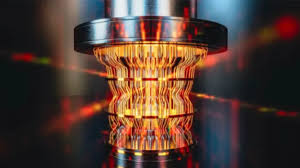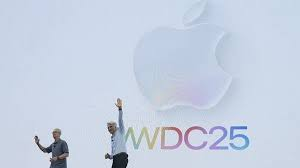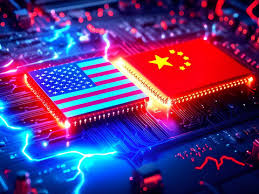Technology
Featured
The Quantum Cold War: How the Race for Computational Supremacy is Reshaping Global Espionage and Defense
Editor
Jun 17, 2025
min read
20 views

While the world's attention is fixed on conventional military conflicts, a silent and infinitely more complex arms race is accelerating in the digital realm: the race for quantum supremacy. Governments in the US, China, and Europe are pouring tens of billions of dollars into developing fault-tolerant quantum computers, machines that promise to revolutionize science and industry but also pose an existential threat to global security. A functional, large-scale quantum computer could, in theory, break the cryptographic standards that protect virtually all of the world's digital secrets—from banking information and corporate intellectual property to classified government communications and military command-and-control systems. This potential has given rise to a new era of 'quantum geopolitics.' 'We are at a critical inflection point,' says Dr. Chen Wei, a leading quantum physicist at Tsinghua University in Beijing. 'The first nation to achieve large-scale quantum computing will have a decisive strategic advantage. It's a 21st-century Manhattan Project.' The primary threat lies in an algorithm devised in 1994 by mathematician Peter Shor. Shor's algorithm demonstrates how a sufficiently powerful quantum computer could factor large numbers exponentially faster than the most powerful classical supercomputers. Since modern public-key cryptography, the backbone of secure internet communication (the 's' in https), relies on the difficulty of factoring these large numbers, the implication is clear: all current encryption is vulnerable. Intelligence agencies are operating under a 'harvest now, decrypt later' paradigm. They are believed to be vacuuming up vast quantities of encrypted data from adversaries, patiently waiting for the day a quantum computer can unlock it all. 'Every secure email, every classified cable, every financial transaction sent today could be retroactively compromised,' warns a recent report from the Center for Strategic and International Studies (CSIS). This has ignited a parallel race to develop 'post-quantum cryptography' (PQC)—new encryption standards designed to be resistant to attacks from both classical and quantum computers. The U.S. National Institute of Standards and Technology (NIST) is in the final stages of standardizing a suite of PQC algorithms. However, a global transition to these new standards is a monumental undertaking that could take over a decade, leaving a significant window of vulnerability. Beyond code-breaking, quantum technology has direct military applications. Quantum sensors could detect submarines or stealth aircraft by sensing minute gravitational or magnetic anomalies, rendering traditional stealth capabilities obsolete. Quantum communications, based on the principle of quantum entanglement, promise ultra-secure links that are theoretically impossible to eavesdrop on without being detected. China has made significant strides in this area, launching the Micius satellite in 2016 to test quantum key distribution from space. The United States, through agencies like DARPA, is investing heavily to close this gap. The race is not just between nations but also between corporate giants like Google, IBM, and Microsoft, alongside a host of well-funded startups. In late 2024, a joint venture between a US tech firm and a European research consortium announced a breakthrough in error correction, a key hurdle in scaling quantum computers. This development, while still in the lab, has intensified the sense of urgency within government circles. The geopolitical implications are profound. A 'Quantum Pearl Harbor' scenario, where one nation secretly develops quantum capabilities and uses them to neutralize an adversary's defenses, is no longer the stuff of science fiction. It is a possibility that military planners are taking very seriously. This new cold war is being fought not with tanks and missiles, but with qubits and algorithms in cryogenically cooled laboratories. The outcome will not only determine the future of technology but could also dictate the global balance of power for generations to come.
Editor
League Manager Editorial Team






Leave a Comment